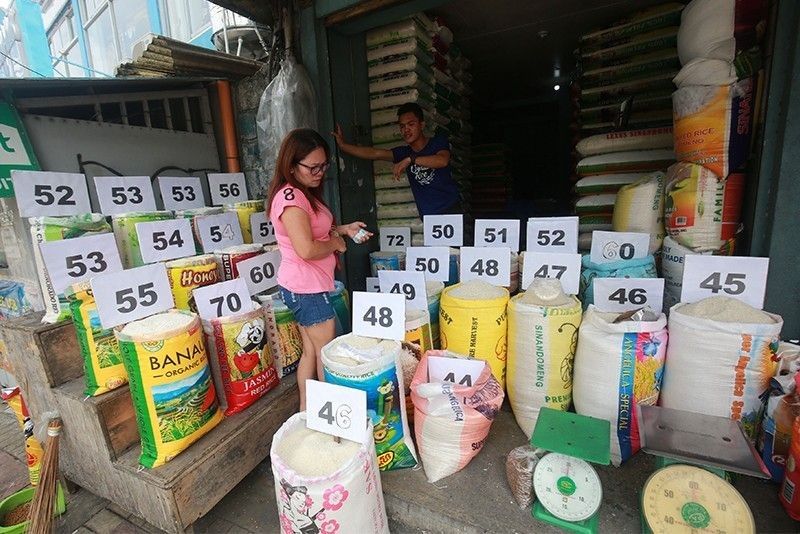Rice tariff law to boost farmers’ profitability

MANILA, Philippines — The P10-billion Rice Competitiveness Enhancement Fund in the newly signed Rice Tarrification Law will help farmers improve their profitability and competitiveness, Sen. Cynthia Villar said yesterday
“We thank and laud the President for signing into law the bill creating a package of support programs for farmers, most notably the P10-billion Rice Competitiveness Enhancement Fund. With the expiration of the quantitative restriction on rice importation, this is a very important piece of legislation which will help our farmers improve their profitability and competitiveness,” Villar said.
Villar, sponsor and principal author of the measure, said the law complements other government programs to address the needs of the farming sector, including the P7-billion Rice Program under the Department of Agriculture and the P7-billion budget of the National Food Authority that will be used to buy palay from local farmers for purposes of buffer stocking.
President Duterte’s economic managers identified rice tariffication as among the measures that would help address soaring inflation.
The measure would create the Rice Competitiveness Enhancement Fund (RCEF) as a special rice safeguard duty to protect the rice industry from sudden or extreme price fluctuations.
“One of the key features of the bill is the creation of the RCEF, which shall consist of initial appropriation of P10 billion a year until all duties collected from the importation of rice can replace it,” Villar said.
The Senate agreed to set the RCEF at a minimum P10 billion a year for six years, and tariff revenues in excess of P10 billion shall be appropriated by Congress based on a menu of programs in the rice tariffication law.
The fund will be utilized to provide different forms of assistance to the country’s rice farmers such as the development of inbred rice seeds, the development of rice farm equipment and skills enhancement.
Villar said the staple grain is the only agricultural commodity in the country that has a quantitative restriction (QR), limiting the inflow of imported rice in the country.
The law replaces volume restrictions on rice importation with tariffs of up to 35 percent. It would allow unlimited rice importation.
Some lawmakers at the House of Representatives, however, declared they would seek the repeal of the law, claiming it would hurt the 2.4 million Filipino farmers.
Speaking for the seven Makabayan group of leftist lawmakers, Rep. Ariel Casilao of Anakpawis said they would file a bill to repeal the law when it takes effect 15 days after its publication.
Casilao said he and his colleagues could not accept that Filipinos would rely on imported rice, instead of producing the staple.
He said the law threatens the livelihood of millions of Filipino farmers, farm workers and small rice traders.
Former Quezon congressman and opposition senatorial candidate Lorenzo ‘Erin’ Tañada questioned the premise that the passage of the Rice Tariffication Law result in lower prices of rice in the market.
Tañada said senators should ensure that the law is properly implemented, as he expressed apprehensions that the law might have negative effects on farmers.
While Casilao and his Makabayan colleagues are not happy with President Duterte’s decision to sign the tariffication bill, congressmen-allies of the administration welcomed it and called for its speedy implementation.
“This crucial legislation is meant to ensure ample rice supply and cheaper rice for all consumers. We risk upsetting rice supplies again when the lean months of July to September come if the rice tariff law is not implemented fast enough,” Rep. Michael Romero of party-list group 1-Pacman said.
Romero said the administration’s economic managers are projecting that once ample supply is brought in, rice prices could go down by as much as P7 per kilo.
Another congressman, Luis Raymund Villafuerte of Camarines Sur, said tariffs to be imposed on rice imports would go to a fund that farmers could access to finance their production requirements.
“The law, which will liberalize rice importation, will at the same time benefit consumers, who include farmers. It will benefit poor households the most, given that rice accounts for 20 percent of their consumption,” he said. – Jess Diaz
- Latest
- Trending



























